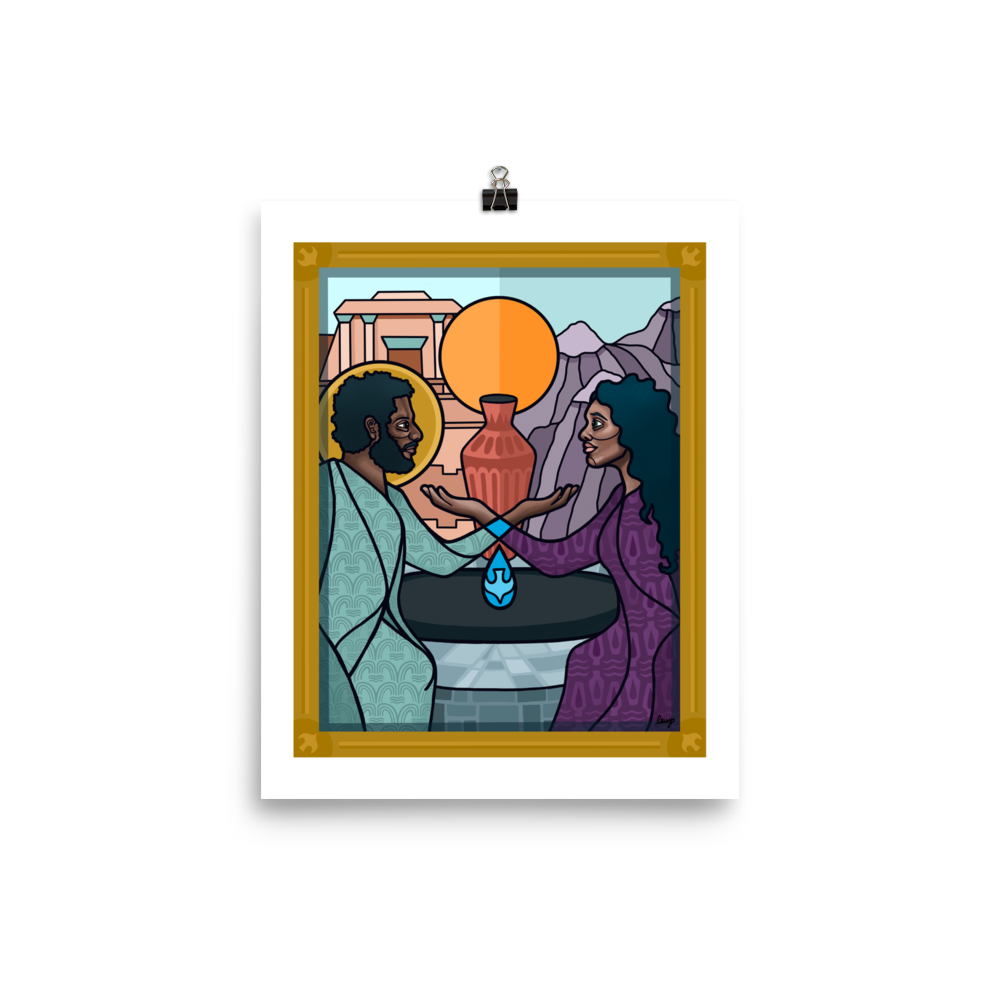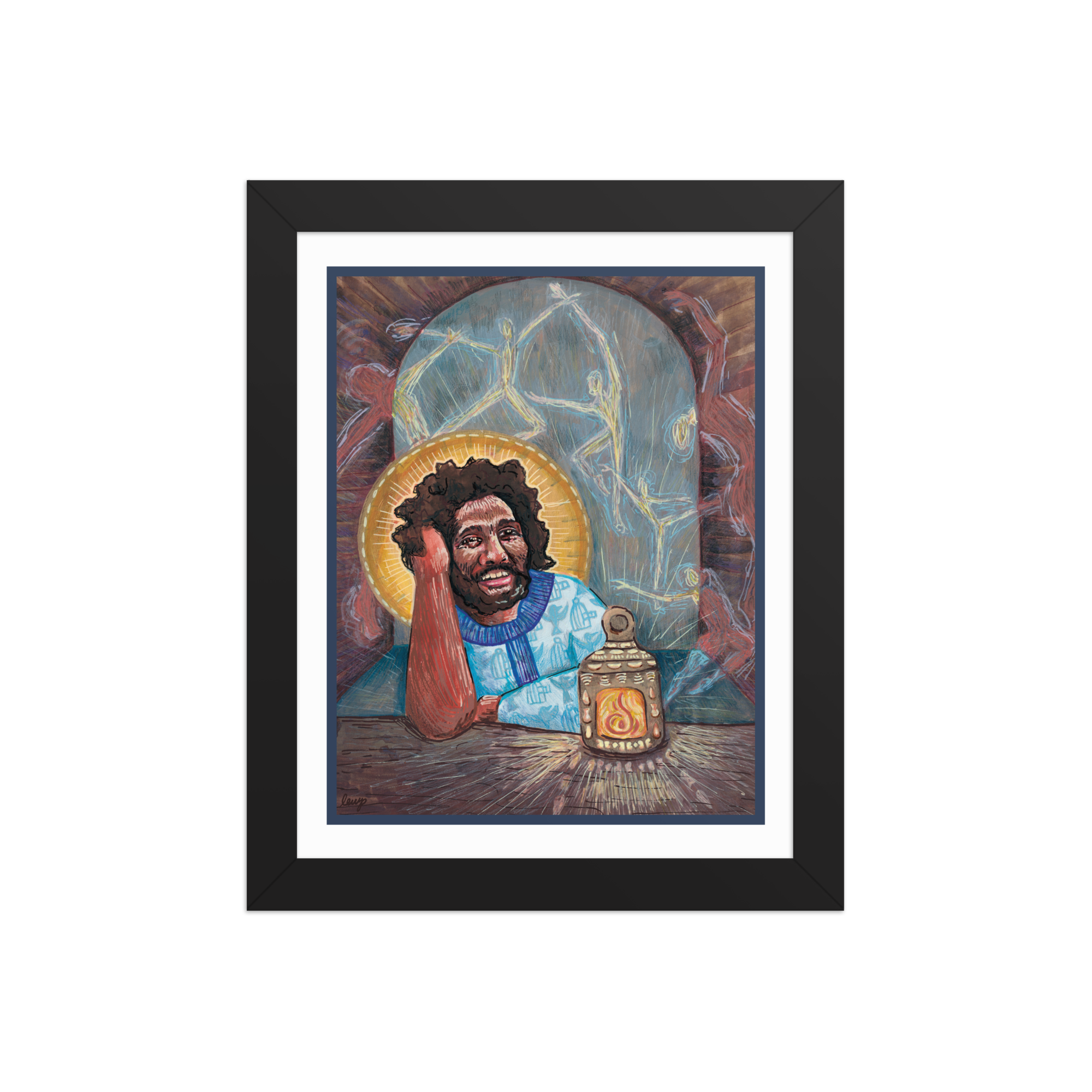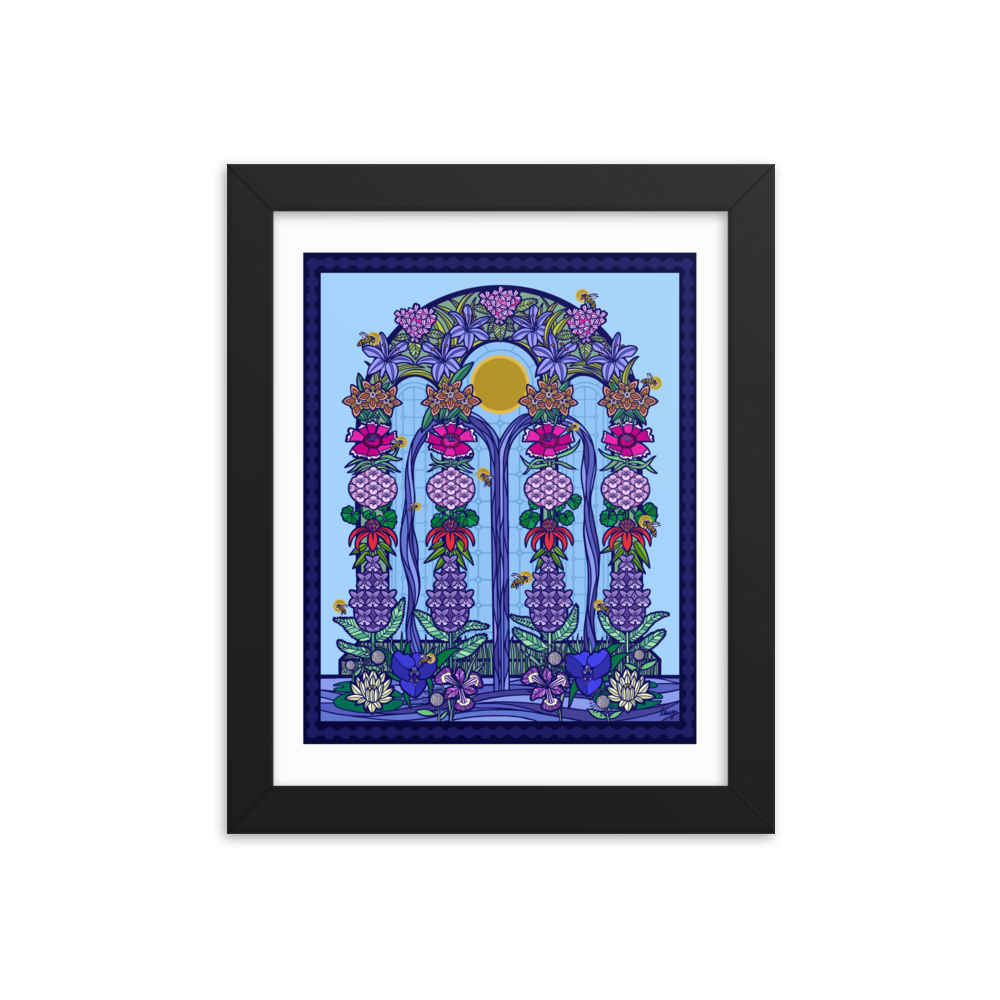Living Water Print (Jesus and the Samaritan Woman at the Well) by Lauren Wright Pittman






Living Water Print (Jesus and the Samaritan Woman at the Well) by Lauren Wright Pittman
Living Water
Digital Painting
By Lauren Wright Pittman
Inspired by John 4:5-42
Museum-quality poster made on thick, durable, matte paper. Unframed artwork will arrive rolled up in a protective tube.
Framing option available.
Print Details:
Museum-quality posters made on thick, durable, matte paper.
Paper is archival and acid-free.
Unframed prints arrive rolled up in a protective tube.
Frame Details:
Alder, Semi-hardwood frame
Black in color
.75” thick
Acrylite front protector
Lightweight
Hanging hardware included
Made in the USA
From the Artist:
In a quick Google image search of this story, I noticed that, in most of the art, Jesus and the Samaritan woman are almost never on the same level. In my piece, the positioning of Jesus and the Samaritan woman is inspired by the work of Karoline M. Lewis in her commentary on John. She introduces a fresh way of looking at this text, with a focus on their “mutuality of need.” Jesus needs water to drink, and the woman needs living water. She writes: “Jesus needs her to be a witness, and she needs Jesus to invite her into this new identity.”*
In this image, their body positioning is mirrored, with their eyes on the same plane. Where their arms overlap becomes a vibrant blue, creating a water drop with a dove in it, representing the living water that springs forth from their mutual need and relationship. Each of their clothing is patterned with the other’s need. In Jesus’ clothing are simplified “springs of water gushing up to eternal life” (John 4:14). In the Samaritan woman’s clothes, her water jar is positioned upright and poured out, representing her wrestling with whether she will interact with this man—and further, whether he is the awaited Messiah.
The image is subtly divided in half by slight shifts in color value. There is a chasm between them socially, culturally, religiously, etc. Referencing a primary dispute between the Jews and the Samaritans, their places of worship are in the background: on the left is the temple in Jerusalem, and on the right is Mount Gerizim.
In the center is the Samaritan woman’s vessel. We are not told whether she fills the jar or gives Jesus water, however, we are told that she leaves the jar behind. Her need is not the water in the well; her need is for grounding in a new identity, and to be seen for who she really is. She needs to not be defined by the worst parts of her life, the number of her husbands, or others’ assumptions, but to be seen through the lens of mutual need—to be seen as one of the first witnesses of the Messiah, and now a vessel of living water herself.
—Rev. Lauren Wright Pittman
* Lewis, Karoline M. John: Fortress Biblical Preaching Commentaries. (Minneapolis: Augsburg Fortress Publishers, 2014). 55.










